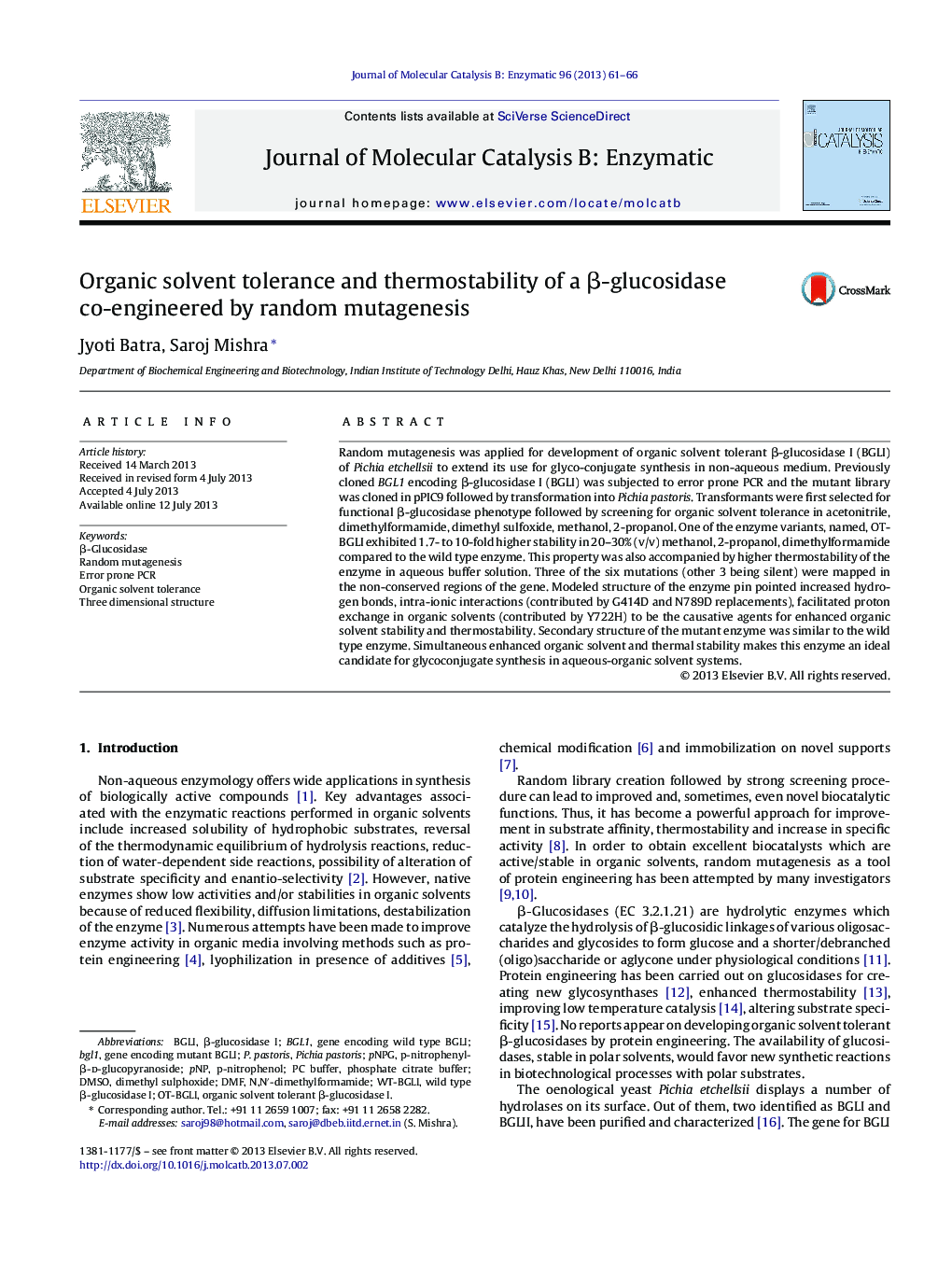| Article ID | Journal | Published Year | Pages | File Type |
|---|---|---|---|---|
| 69795 | Journal of Molecular Catalysis B: Enzymatic | 2013 | 6 Pages |
•Mutagenesis of β-glucosidase I and screening of the mutant library.•Enhanced tolerance to organic solvents and thermostability.•Identification and functional role of the mutated amino acids.•Similar kinetic parameters and secondary structure of mutant and wild type enzyme.
Random mutagenesis was applied for development of organic solvent tolerant β-glucosidase I (BGLI) of Pichia etchellsii to extend its use for glyco-conjugate synthesis in non-aqueous medium. Previously cloned BGL1 encoding β-glucosidase I (BGLI) was subjected to error prone PCR and the mutant library was cloned in pPIC9 followed by transformation into Pichia pastoris. Transformants were first selected for functional β-glucosidase phenotype followed by screening for organic solvent tolerance in acetonitrile, dimethylformamide, dimethyl sulfoxide, methanol, 2-propanol. One of the enzyme variants, named, OT-BGLI exhibited 1.7- to 10-fold higher stability in 20–30% (v/v) methanol, 2-propanol, dimethylformamide compared to the wild type enzyme. This property was also accompanied by higher thermostability of the enzyme in aqueous buffer solution. Three of the six mutations (other 3 being silent) were mapped in the non-conserved regions of the gene. Modeled structure of the enzyme pin pointed increased hydrogen bonds, intra-ionic interactions (contributed by G414D and N789D replacements), facilitated proton exchange in organic solvents (contributed by Y722H) to be the causative agents for enhanced organic solvent stability and thermostability. Secondary structure of the mutant enzyme was similar to the wild type enzyme. Simultaneous enhanced organic solvent and thermal stability makes this enzyme an ideal candidate for glycoconjugate synthesis in aqueous-organic solvent systems.
Graphical abstractFigure optionsDownload full-size imageDownload as PowerPoint slide
